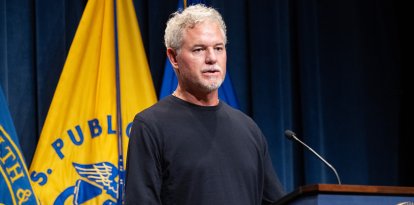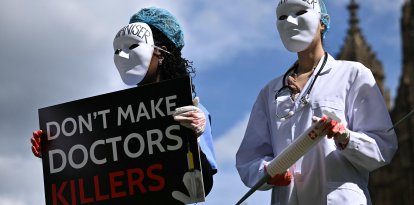Gender madness: New scientific reports in Europe advise against trans treatment for minors
Studies in England, France and the Netherlands question the lack of reliability of these procedures and their risks, as well as such treatment for children being used to promote an ideology.

(Unsplash)
The explosion of gender-affirming medical care for children always had an emotional basis that prevailed, to a large extent, due to the absence of reliable scientific reports. This, among other things, was condemned by Dr. Hilary Cass in a devastating study from the United Kingdom that led the government to prohibit gender-affirming care for minors. This report joins other work published in France and the Netherlands that represent a massive blow to gender ideology.
United Kingdom: 'Poor quality' of studies justifying gender-affirming treatment
In her conclusions, Cass claimed that "while a considerable amount of research has been published in this field, systematic evidence reviews demonstrated the poor quality of the published studies, meaning there is not a reliable evidence base upon which to make clinical decisions, or for children and their families to make informed choices." Furthermore, on this matter, "the strengths and weaknesses of the evidence base on the care of children and young people are often misrepresented and overstated, both in scientific publications and social debate."
One of the main criticisms is that "the use of masculinising / feminising hormones in those under the age of 18 also presents many unknowns, despite their longstanding use in the adult transgender population. The lack of long-term follow-up data on those commencing treatment at an earlier age means we have inadequate information about the range of outcomes for this group."
Furthermore, Cass warns that "for most young people, a medical pathway will not be the best way to manage their gender-related distress. For those young people for whom a medical pathway is clinically indicated, it is not enough to provide this without also addressing wider mental health and/or psychosocially challenging problems."
Netherlands: 'It is normal to have some doubts' about gender identity in adolescence
Shortly before, a study was published in the Netherlands in which 2,700 young people between the ages of 11 and 25 were monitored and asked every three years about how they felt about their sex. At the beginning of the study, one in 10 minors expressed "dissatisfaction with their gender at one point during development." At the end of the research, 15 years later, only one in 25 indicated that they were "often" or "sometimes" dissatisfied with their biological sex.
This led the researchers to conclude that "the results of the current study might help adolescents to realize that it is normal to have some doubts about one’s identity and one’s gender identity during this age period and that this is also relatively common." Some scientists who were not involved in the study, such as Patrick Brown of the Center for Ethics and Public Policy, told The Daily Mail that "this study provides even more reason to be skeptical towards aggressive steps to facilitate gender transition in childhood and adolescence."
France: 'One of the biggest ethical scandals in the history of medicine'
Also in 2024, the French Senate presented a study that called for a ban on hormone therapy and puberty blockers to treat gender dysphoria in minors. Senator Jacqueline Eustache-Brinio, of the Les Républicains party (center-right), was alarmed by what she called "one of the greatest ethical scandals in the history of medicine." The authors of the work condemned "a number of abuses by health professionals, indoctrinated by a “trans-affirmative” ideology and subject to the influence of experienced trans activist associations. The report’s authors accuse these associations of unreasonably encouraging gender transition in minors via an intense propaganda campaign on social media," according to The European Conservative. French lawmakers announced that they intend to present a bill to ban these treatments before the summer.
Although data in France is far from complete, doctors involved in the parliamentary investigation reported an overwhelming increase in requests for gender reassignment, even among very young children. For example, Professor David Cohen, head of the child psychiatry service at Pitié-Salpêtrière Hospital in Paris, estimated that 16% of his minor patients were under 12 years of age.
Psychologist Celine Masson and child psychiatrist Caroline Eliacheff, both authors of the acclaimed essay, "The Making of the Transgender Child," published in 2022, highlighted that the vast majority of children treated for "gender dysphoria" also suffer from other disorders. A quarter of the children cared for at Pitié-Salpêtrière for these reasons drop out of school, 42% have been victims of bullying and 61% have suffered an episode of depression. One in five has attempted suicide. Both claim that gender reassignment is proposed to children as a solution to their problems without trying to explore other ways to overcome their deep discomfort.
These reports further intensify the pressure on governments to reverse legislation on gender-affirming care for minors, something that has been observed for years in countries that were pioneers in legalizing them, such as Sweden, Norway and Finland.

























